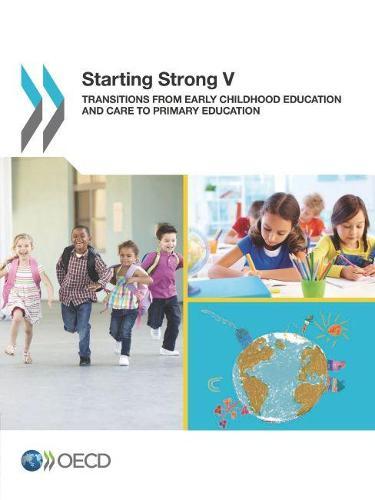Overview
The transition from early childhood education to primary school is a big step for all children, and a step which more and more children are having to take. Quality transitions should be well-prepared and child-centred, managed by trained staff collaborating with one another, and guided by an appropriate and aligned curriculum. Transitions like these enhance the likelihood that the positive impacts of early learning and care will last through primary school and beyond. While transition policies have been on the agenda of many countries over the past decade, little research has been done into how OECD countries design, implement, manage and monitor transitions. Filling these gaps is important for designing early years' policies that are coherent, equitable and sustainable. This report takes stock of and compares the situation across 30 OECD and partner countries, drawing on in-depth country reports and a questionnaire on transition policies and practices. It focuses on the organisation and governance of transitions; and the policies and strategies to ensure professional, pedagogical and developmental continuity between early childhood education and care settings and schools. The report describes the main policy challenges highlighted by participating countries, along with a wealth of practical strategies for tackling them. The publication concludes with six “cross-cutting” pointers to guide future policy development.
Full Product Details
Author: Organisation for Economic Co-operation and Development
Publisher: Organization for Economic Co-operation and Development (OECD)
Imprint: Organization for Economic Co-operation and Development (OECD)
ISBN: 9789264276239
ISBN 10: 9264276238
Pages: 294
Publication Date: 30 June 2017
Audience:
Professional and scholarly
,
Professional & Vocational
Format: Paperback
Publisher's Status: Active
Availability: Manufactured on demand

We will order this item for you from a manufactured on demand supplier.
Author Information
The OECD is an international organization that consists of 30 Member countries from the developed world that accept the principles of representative democracy and free market economy. It originated in 1948 as the Organization for European Economic Cooperation (OEEC) to help administer the Marshall Plan for the reconstruction of Europe after World War II. Later its membership was extended to non-European states, and in 1961 it was reformed into the OECD. The organization provides a forum where governments can compare policy experiences, seek answers to common problems, identify good practice and co-ordinate domestic and international policies. With active relationships with some 70 other countries and economies, NGOs and civil society, the organization has a global reach. Renowned for its publications and statistics, its work covers economic and social issues from macroeconomics, to trade, education, environment, development and science and innovation.




